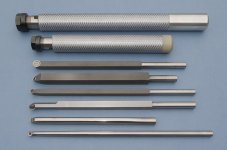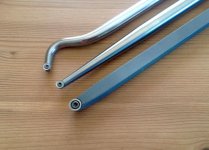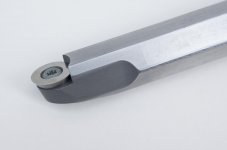martin.pearson
Full Member
Since discovering that cross cut blanks showed the wood in a different way I have been cutting nearly all my blanks this way or at 45 degrees, problem doing this is that I now seem to be spending more time sharpening my gouge than actually turning lol, some woods like Oak seem to dull the edge very quickly & the other drawback is that the sharpening wheel doesn't stay flat so more trueing up required.
So the question is would buying a carbide tipped gouge be a good idea just to use for roughing down the blanks. Not looking to buy a set of carbide tools but just one spindle gougle which is what I use to rough them down just now.
As usual I look to you experts for advice lol
So the question is would buying a carbide tipped gouge be a good idea just to use for roughing down the blanks. Not looking to buy a set of carbide tools but just one spindle gougle which is what I use to rough them down just now.
As usual I look to you experts for advice lol


 :wink:
:wink:

 . As you probably know you can get a nice polished finish from the skew as the bevel burnishes the wood and minimises sanding. It's just practice! You'll already have found that crosscut means end grain which is prone to tear out and a carbide tipped tool is just a scraper. There are turners here who use little else but carbide tools and produce some excellent work.
. As you probably know you can get a nice polished finish from the skew as the bevel burnishes the wood and minimises sanding. It's just practice! You'll already have found that crosscut means end grain which is prone to tear out and a carbide tipped tool is just a scraper. There are turners here who use little else but carbide tools and produce some excellent work.

